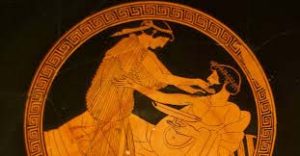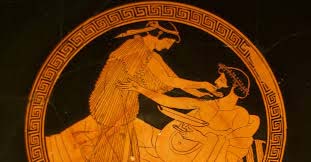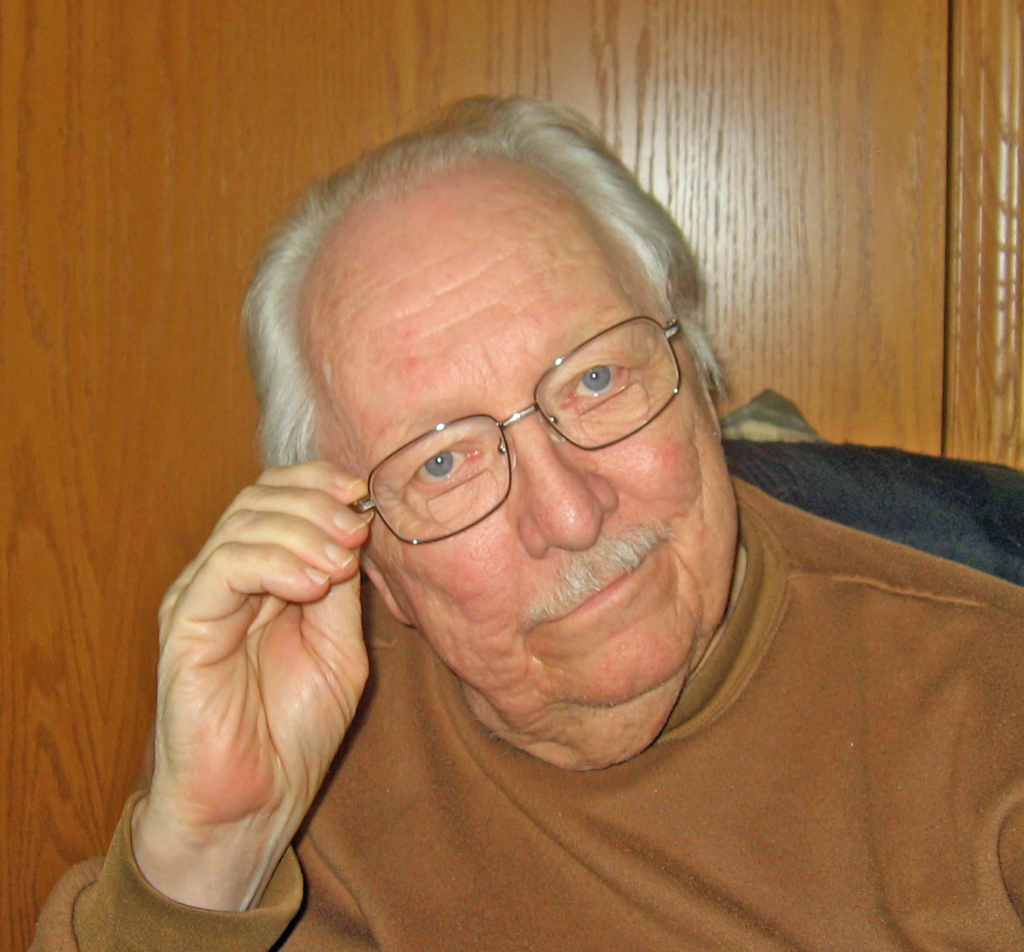Sharing is caring!
This story probably goes back to the 1970s. I was fascinated by the odd wording of the translations of old Greek stories. I often wondered if they were trustworthy translations of the old Greek or more to fit the period when they were translated. I wanted to write a story in that slightly different mode of writing. I decided to “correct” the story of the Theseus of Athens desertion of his wife, Ariadne. The story you are about to read is the result. As far as I know, it has no parallel in ancient Greek literature.
Please tell me if my story seems like something translated from the old Greek like the Iliad or Odyssey. You can use the comments section below or the CONTACT ME button at the top of the page.

Theseus of Athens and the Lesser God
I am the Theseus of the famous Athenian saying, `Nothing without Theseus.’ My time was in the childhood of mankind. I slew the Minotaur and put Procrustes to bed. I defeated Creon and buried the defiled dead. Both Euripides and Aeschylus sang my praises, but I have been slandered. Zeus has given me the opportunity to right this slander long abroad in the world. Hear me: I did not desert my beloved Ariadne. It is the most foul lie of a lesser god. Let me tell you the truth.
Fill your cup with wine and listen. If it had not been for this foul lesser god’s vile act, I would never have met my poor dear Ariadne. Do you remember how the awful Minotaur came into this world? Minos was the king of Crete. In those days, Minos would ask the god of the sea, Poseidon, for bulls. Minos would then sacrifice them to Poseidon. Each time Minos asked for a bull, Poseidon would create an ever more beautiful animal as a test of Minos. Finally, Minos succumbed to the beauty of a bull. He could not bear to slay the creature and kept it. Minos loved that bull’s lines and saw it as the sire of a great herd.
Poseidon sought the help of Aphrodite for his vengeance on Minos. Aphrodite left the evil deed to that corrupting lesser god, Eros. It did Aphrodite’s bidding well. Pasiphae, the wife of Minos, fell in love with the bull as a woman loves a man because of this foul god. Human flesh was unnaturally defiled then. A bloody blemish, an evil spore, a bloodthirsty monster was born of that unnatural union. Pasiphae loved that thing. Minos loved Pasiphae. He should have killed that bloodthirsty loathsome creature when it first suckled at Pasiphae’s breast, but he felt his guilt. His love, his greed for the bull, was the father of the Minotaur.
Minos turned to the wisest of all men then living, Daedalus. Daedalus created the Labyrinth to hide that product of bull and human, the Minotaur. Lesser gods do not always know what they create. So it was with this stinking god. Something of Erebus crept into Pasiphae’s foul offspring. The Minotaur desired death. Not any death, but the death of the youngest and the fairest. It fed not only on their bones or flesh, but on the fear of innocents at the moments of their deaths. Because it was not entirely of our world, it fed only every ninth year.
The next part of the story you know well from the poets. Crete captured Athens. Minos had his flesh for that evil thing. He demanded tribute of seven maidens and seven youth every ninth year. My father was the king. We did not know all of Mino’s terrible secret. We knew those who went to Crete were destroyed by some beast shaped like a bull. It seemed appropriate since the cause of the war had been the death of Androgeus, Minos’ only son, on the horns of a bull in Athens. I made up my mind I was going to kill that bloody blemish. We thought it was more bull than anything else, so I practiced killing bulls with my bare hands. There was not a bull in our land that I could not best. I chose to go as one of the seven youths when the time for the next tribute came.
Minos greeted us with great warmth and sadness. I believe he was sickened by Pasiphae’s foul offspring’s appetites. Pasiphae had a mad look in her eyes, but her daughter did not. Ariadne saw me the moment we stepped off the ship. She sought me out at the palace. We loved. She took the secret of the Labyrinth from Daedalus and delivered it to me. It was but a pattern to learn. So many times right, so many times left, but to protect Daedalus, we invented the story of the string you know so well. There were seven weeks of feasting before we went into that putrid hole. Ariadne and I laughed and loved each day. Her father saw and did not care. Her mother grew madder by the day. She was a red-eyed fiend the day we entered the Labyrinth. Her black hair had become matted and twisted. It looked like the snakes the poets tell us of from the time when the long-dead evil iron race ruled the world.
I entered first. The smell . . . the smell was like the rotted flesh of a thousand dead warriors on a hot summer’s afternoon. Even now, I can taste it. It clings to the memory as the muddy slime from the swamp clings to the body. I told the others to stay by the door. I gave them one end of the thread, but as soon as I was out of their sight, I tied it to the wall and made my way to the heart of the Labyrinth following the pattern Ariadne had given me. It greeted me. Did you know that the evil creation of a lesser god had the power of speech? It greeted me by name. `Theseus,’ it said, `I greet you. I welcome you to my home. We shall talk before you are my victim.’
I wanted to vomit.
`Theseus,’ it said, `Do you know Ariadne has your first son in her womb? I control her mother, Pasiphae? Do you know what is going to happen a few months after you are dead? Ariadne will give birth. I will compel her mother to bring your son here, and as Ariadne watches, I will tear its life from it and then devour it.’ It laughed for the last time.
Have you heard what the Minotaur looked like? It was half man half bull. It had the head and shoulders of a man and the body of a bull. There was no man, but Hercules I could not best when I was young. It stopped laughing when I hit it in the face. I hit in the face ten times ten for each Athenian youth it had killed. I beat it and beat it until it was bloody, and it was no more — then I snapped its neck to make sure it would not live again. Do you know what happened then? That lesser of all the gods appeared. He was angry because I had destroyed his creation. He swore his revenge and told me I would always be known as the defiler of Ariadne and the man who left her to die.
I went back to the entrance of the Labyrinth. My anger had not yet left me, and I broke down the door. The people of Crete ran. They thought the Minotaur was behind me. I called to them, and they came back. Minos came. Ariadne came. Pasiphae came, but the spell was broken. She thanked me for freeing her.
My hands were bloody. Hands are not meant for killing that way. The healers worked on my hands. It was months before I could feed myself. Ariadne fed me. I could feel my son move inside her womb when I laid my face against her swelling belly. We played together and laughed my dear sweet Ariadne and me. I weep even now for her fair skin and gentle laugh. She was the gentlest of all. I hate that vile godling. The time came, and my duty to my Athens and my father called me home. Ariadne was to go with me. We had married with the blessing of Minos.
We sailed for Athens, but Ariadne was sick with the child, and the ocean made her sicker. The ship stopped at the isle of Naxos. Ariadne stayed, and I went home. You know the tragedy of my father’s death. It was the work of that lesser god, too. That vile thing turned someone’s head for a moment, and the wrong sail was unfurled. My father died when he saw the black sail and thought me dead in Crete. It took time before I could go back to Naxos. There were duties. Ariadne had died trying to give birth. I cursed that putrid excuse for even a lesser god who had started all this pain. I cried so loud to Zeus that his mother or friend or whatever Aphrodite is to him grew angry with me. She swore her revenge. She had her revenge in two ways. I was made the deserter of Ariadne in all the world’s tales. You may believe that because of her, but the other half of her revenge, you know also. You know what she and that lesser god did to my wife Phaedra, who was the younger sister of Ariadne’s. You know she died because that stinking foul godling made her fall in love unnaturally with her stepson, my son Hippolytus. Because I believed a dead woman, I cursed my son Hippolytus, and he died too. It was Artemis who told the world the truth of these last events, but I have always remained the deserter of my beloved Ariadne. You know now the lie of that lesser god, Eros. Tell the rest of the world. Thanks be to Zeus.
Farewell.

